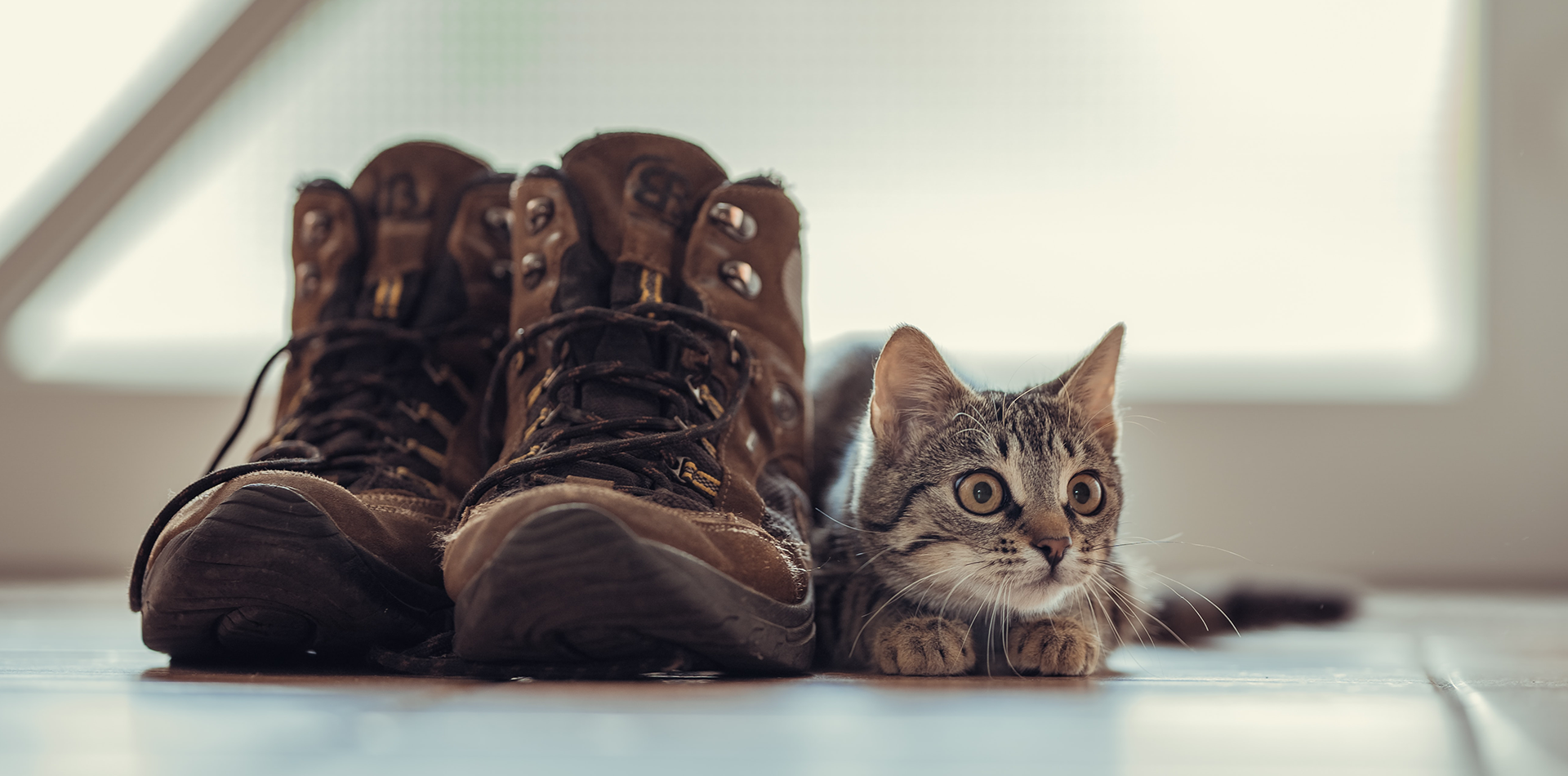You’ve seen it: your cat crouches low, wiggles their hind end to check their balance, becomes still and prepares to pounce. In modern life, this may be a game you play with your cat using a toy, but cats have evolved to be solitary hunters, and their hunting skills would have determined their survival before they became our favourite roommates.
Built-in tool kit. Cats have a variety of tools to mark out their territory for hunting, and these practices play an important role in feline social structure. Cats may mark their territory by spraying (i.e., having a tinkle), not covering their poo, rubbing (including rubbing you!), or scratching. Each of these leaves your cat’s scent behind for other cats to find. Sometimes these behaviours can be used to establish dominance, but they can also just be a way for your cat to alert other cats of their presence.
Territorial beings. Some cats may be fine with a territory that overlaps with that of other cats, particularly if the dynamics of hunting for survival and access to limited food sources are not at play. Other cats may jealously guard their territory and will be aggressive if it is violated by outsiders. Bear in mind how your cat may react if their territory is infringed upon by other animals or by people, especially if you are introducing a second cat into your home.
Food focused. Even if your cat has a regular food source (lovingly prepared by you), they still have an instinct to hunt and mark out territory to do so. Anything from rodents and birds to toads and even spiders is likely to pique your cat’s interest and trigger the hunting instinct. Besides being important to survival in the wild, hunting is also a way for your cat to expend energy, and cats can spend hours searching for and stalking prey.
Sharing the love. Sometimes, your cat may hunt and kill their prey only to bring it home to you as a prize instead of eating it. While you may not find their bounty quite so appetising, this is actually a sign of your cat’s affection: they want to share their hard-earned meal with you.
Encouraging this behaviour with toys and treats is a great way to respect your cat’s natural instincts. Pay attention to their needs and try not to interrupt them if they’re (safely) hunting in the wild outdoors of your garden.

